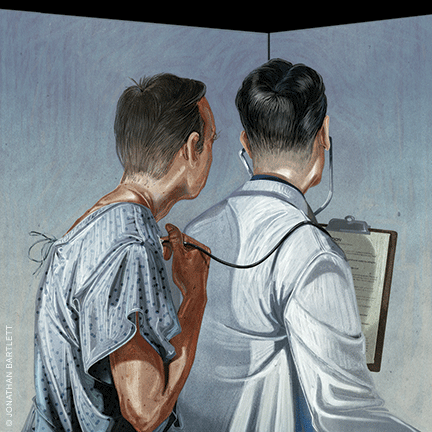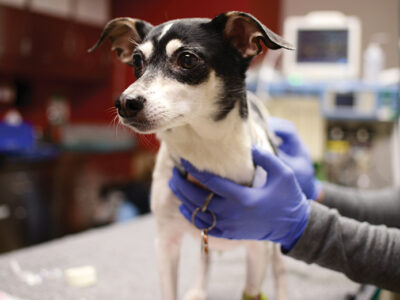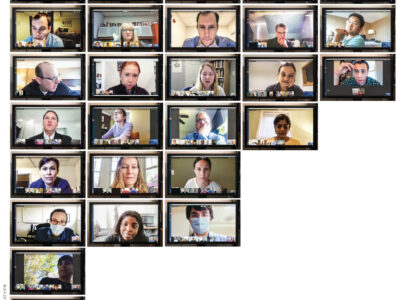
By Barron H. Lerner | When one of my father’s end-stage AIDS patients developed widespread lymphoma in 1994, my dad did not offer him chemotherapy, but rather prescribed palliative morphine to ease the pain as the man died. He did not inform his patient of this decision. They had, my father believed, a “tacit understanding” that this was what should be done.
I learned about this while reading my dad’s journals in preparation for writing a book on his career—and my own—in medicine. Like other cases I encountered in his writings, this one made me uncomfortable. In addition to my training in internal medicine, I have advanced degrees in bioethics and medical history, two fields that, beginning in the 1970s, had successfully challenged the sort of overweening paternalism my father favored. Yet as late as 1994, my dad was still up to his old tricks.
Yet even as a fervent advocate of patient autonomy, which places decision-making in the hands of patients and families, I had to wonder. Had medicine gone too far in the direction of patients’ rights? Especially in cases of complicated, life-or-death decisions, didn’t it make sense to take the advice of experienced professionals like my father?
The apogee of paternalism coincided with what has been termed the “golden age” of American medicine in the 1950s and 1960s. Many of the greatest advances had come in my father’s chosen specialty, infectious diseases. For the first time, physicians could prescribe penicillin and other antibiotics to treat previously incurable infections, and could prevent polio with a vaccine. So doctors of my father’s era rarely asked patients for input, preferring to run the show. Perhaps the most extreme example of this paternalism was a disinclination to tell patients they had cancer; doctors substituted terms like tumor or inflammation. The idea was that bad news would make patients depressed and less able to fight their cancers. Physicians preferred to shoulder the burden.
This mindset was fostered by the fact that most physicians, at least during their training, practically lived in the hospital. My father immersed himself in his cases—to a degree that would seem foreign to many freshly minted MDs today. He took particular pride in knowing not only all of the medical details, but also his patients’ backgrounds, families, and even values. He spent hours and hours on the phone during our family vacations touching base with covering doctors. Armed with such knowledge, and decades of training, why wouldn’t physicians rule the roost?
Well, for one reason, with such authority came abuses. By the 1970s, the media had reported on several research studies in which doctors had actively misled subjects. In the Tuskegee syphilis experiment, the US Public Health Service deliberately withheld treatment from poor African-American men with that disease. At Willowbrook State School in New York, researchers fed active hepatitis virus to developmentally disabled children. Meanwhile, the civil-rights movement and feminism were questioning existing power structures. Patients—ranging from women with breast cancer to those giving birth—began to demand active participation in their care. Eventually, informed consent became the gold standard for medical decisions.
I was not a bystander in this evolution. As an undergraduate at Penn, I had majored in history while completing my pre-medical studies. After studying bioethics and medical history in graduate school, I researched some of the questionable ethical practices of my father’s generation of physicians. In a book about tuberculosis, I revealed that doctors at sanatoriums forcibly detained patients not because they were infectious but because they were Skid Row alcoholics who disrupted the institutional regimen. Some of the physicians I uncovered in my research on breast cancer had verbally abused women who asked them about alternatives to the disfiguring radical mastectomy.
Consequently, I embarked on my own medical career as a solid devotee of patient autonomy. I tried hard to give my patients as much information as possible and get them to make decisions. On my institution’s ethics committee, I supported full disclosure of information to patients and families as well as their right to choose among treatments—even those that I thought had a small chance of working. Often using the past as a foil, I taught these principles to medical students.
By and large, my father’s journals corroborated what I had suspected: although he acknowledged bioethics, he remained an unabashed paternalist. He believed he knew what was right, and liked to get his way. Deception was acceptable, if the patient would benefit.
It would be easy for me to simply roll my eyes at these stories, seeing my father as a relic. But a closer reading revealed how his philosophy formed a cohesive whole—and one that holds important lessons for today’s physicians. Take that end-stage AIDS patient, for example. My dad wrote that the man had actually shied away from discussing possible lymphoma when he first raised the topic months earlier. And, as this patient was dying, my father wrote: “He squeezed my hand in return, as he smiled at me, thanking me, I think, for being so concerned about him.”
In another case, my father described how he physically prevented his colleagues from resuscitating a newly deceased patient who had been hospitalized for six months. She had been rendered bedbound by end-stage arthritis and had no hope of recovery. Although, strictly speaking, what he did was illegal and unethical, I realized that my dad knew this patient far better than anyone else, and was most concerned with ending her extreme suffering. I also read about his clever gambit to invite a religious Catholic colleague to consult on a religious Jewish woman, facilitating a connection that led the reluctant patient to agree to a necessary biopsy. And how my dad invited another patient, an angry woman with leukemia, to scream at him if it helped her accept the treatments that would prolong her life.
It remains clear to me that we should not return to the era of paternalism. Patients’ rights have become central to medical care. Plus, in an era of healthcare reform, most doctors cannot devote as much time to patients as my dad did. Yet physicians should strive to be more than mere technicians who provide patients with a menu of options—an approach to medicine my dad hated. Behind the paternalistic attitude of my father’s generation lies an ethos well worth preserving: doctors should get to know their patients as people, and, as Dartmouth physician Albert G. Mulley Jr. has advocated, “diagnose” not only their conditions but their preferences as well, actively ascertaining what patients do and do not want. To do anything less is an abrogation of duty.
Barron Lerner C’82 is the author of The Good Doctor: A Father, A Son and the Evolution of Medical Ethics (Beacon 2014), from which this essay is adapted.




